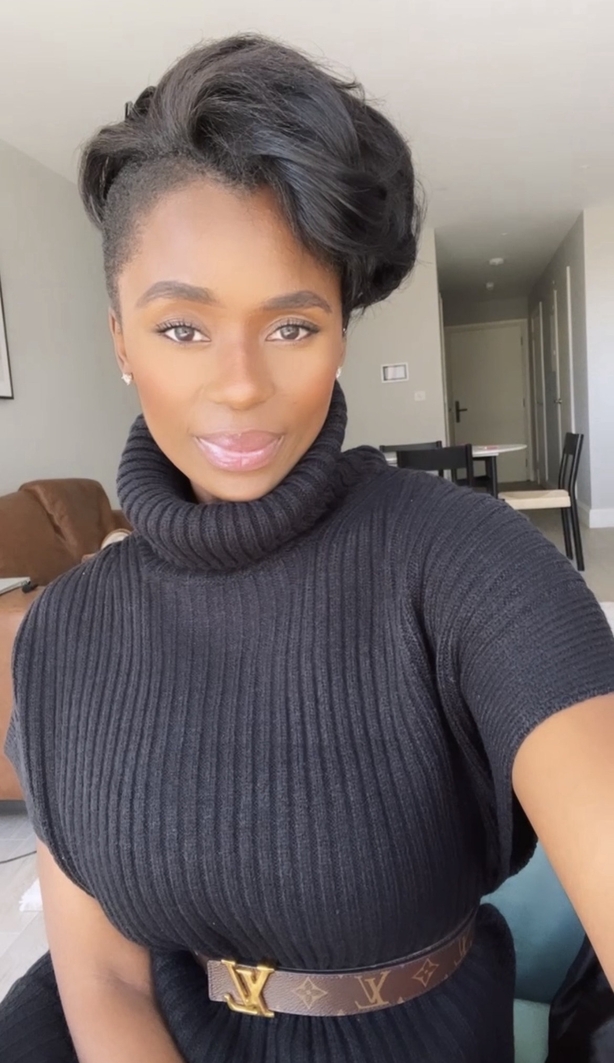Sarah Adekola spoke to RTÉ Lifestyle about money management, overcoming your fear of money and why women have been traditionally excluded from the conversation around finances.
Sarah Adekola, or @millennialwealthsarah, has built an online following of over 198,000 on TikTok alone thanks to her short, snappy and informative videos on everything from investing and applying for a mortgage, to making the most of your annual leave and getting discounts from major brands.
She spoke to RTÉ Lifestyle about money management, overcoming your fear of money and why women have been traditionally excluded from the conversation around finances.
Growing up in a Nigerian household, Adekola learned the importance of financial management early on. "I've always been thinking it's important to save, it's important to invest, it's important to be financially astute. Being Nigerian, it was always important. We talked about money all the time because we didn't have a lot of it. So we talked about how we could manage what we had and make it go a little bit further."

At 13 she started work in her aunt's hair salon. By the time she was in university, she says she already had four income streams: a job at Nespresso, selling wigs, doing hair, and as a brand ambassador for the university.
Although monetary hardship early in life can affect a person in multiple ways, for Adekola it made her determined to avoid the same situation in the future. "That motivated me to never have to struggle as I grow older in life and when I have kids," she says.
"Because in school we're not really taught about personal finances so if you're not taught about it in the home, then it's incumbent on you to do that."
In her work, Adekola aims to help people – especially women – learn the skills they missed out on. Most people coming to her, she says, are "scared" of dipping their toe and starting the often daunting conversation around money.
After almost three years of pandemic-related disruption, a recession not long before that, and a cost-of-living crisis now, Adekola says that many people are ready "to leave the struggle behind and be empowered through financial literacy."
This is particularly relevant among women, as the gender pay gap still means some women are not reaping the rewards they should be. In Ireland, the differential between the average pay of males and females within an organisation averages 14%, according to the CIPD.
Money doesn't buy you happiness, the saying goes, but it does offer you freedom, a valuable resource depending on the limitations felt by some people, be that a toxic work environment, an abusive relationship or strained mental health.
"Money buys you more options so that you can actually live the life you want," Adekola says. "So if you're stuck in a 9-5 and you hate it, if you start investing and you start a business and you start making a lot of money now, you can actually start doing a job that you're interested in and providing for your family."
This is one of the core reasons why financial literacy is especially important for women. "I think we're still not past that stigma for most women, or if you're nonbinary, if you choose to get married, it's the man who is the provider," Adekola says.
Social media is offering a platform for women to educate themselves and others about money. Tori Dunlap, who posts on TikTok under the name Her First 100k, is one such influencer-entrepreneur who has igniting a conversation about financial feminism.
"That's what we need," Adekola says. "If you look on TikTok, YouTube, Instagram, it's all men that are talking about this. There's not a lot of women. And I think we need to start including women in the conversation and them being empowered and leaving some of those traditional stereotypes behind."
It helps that research recently found that women appear to be better investors than men in the long run. For Adekola, that strikes as true: "We are more cautious when it comes to how we use our money, because a lot of time we haven't had a lot of money to manage. So whatever we had, we were very specific with this."
For those looking to start investing, Adekola recommends thinking about the why before the how. "Invest in educating yourself as to what is it that your goal is. First, understand why do you want to start investing, why do you want to start a business? What are you trying to achieve?"
If, after that, you find it difficult to understand the jargon, she suggests contacting a certified financial advisor. "Too many people skip those two things and just start throwing their money into things that they don't understand, and that's why they lose money. And then they're like, well, it wasn't worth it."
Adekola's platform is about the broader difficulty many of us have with talking about money, something she says we need to topple. "We need to just get past this money taboo, especially in Ireland. I think it's a big thing. If you're even talking about money or asking someone, how much did your house cost, it's like, oh, my God, why are you being so intrusive?
"If we still have that block that we can't talk about money, I can't ask you how much you're on, and you're my best friend, so you can help me get more, then we can't even move to the next step."


